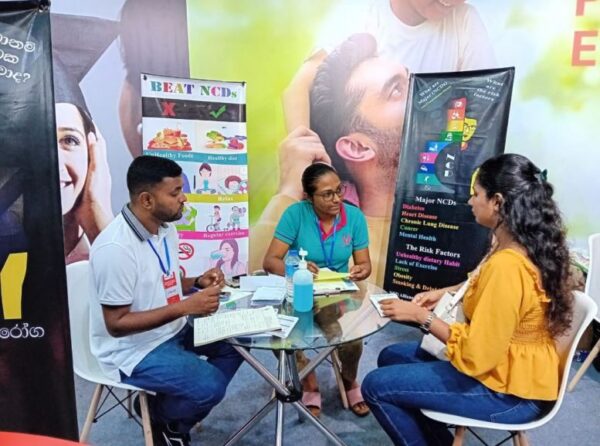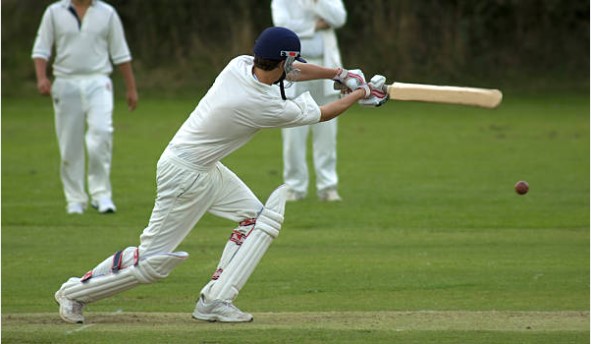Diabetes: An Insulin-Resistant Malady – By Dr Harold Gunatillake

Understanding the True Nature and Effective Treatment Approaches Hello my Readers, In Sri Lanka, there is a high prevalence of type 2 diabetes.
A 2019 national survey revealed that almost one in four Sri Lankan adults (23%) had diabetes, and another one in three (31%) had high blood sugar levels.
There are many undiagnosed diabetic cases, especially in rural areas, since most people are not health conscious. Those who are diagnosed often prefer Ayurvedic treatment over proper, scientifically proven Western methods.
A significant portion (38%) of those with diabetes in Sri Lanka remain undiagnosed.
The prevalence of pre-diabetes is also high, with a pooled pre- diabetes prevalence of 15.57%.
Studies have shown that the prevalence of type 2 diabetes was highest in the Northern province, followed by the Southern, North- Central, and Central provinces.
The prevalence of diabetes is higher in urban areas compared to rural areas, possibly due to commuting by public transport to work and engaging in sedentary office jobs. In contrast, rural populations often walk extensively and work hard as farmers or in other agricultural pursuits.
It has been observed that the prevalence of diabetes correlates positively with Body Mass Index (BMI), exhibiting lower rates among individuals classified as underweight and higher rates among those considered overweight and obese.
A clear upward trend in the prevalence of diabetes mellitus is becoming a significant issue in Sri Lanka. It was once considered a disease of the wealthy, but the situation appears different today.

Management discussion with a patient at the Diabetic Association, Rajagiriya, Colombo, Sri Lanka
Diabetes is a complex condition that impacts millions of lives around the globe. While symptoms like high blood sugar levels have typically identified it, emerging research shows that it’s more fitting to think of diabetes as an issue of insulin resistance. By viewing it this way, we may discover more effective treatment approaches that address the underlying causes rather than merely managing the symptoms.
Let us understand the concept of insulin resistance.
Insulin resistance is a condition in which the body’s cells become less responsive to the hormone insulin, which is essential for regulating blood sugar levels. When cells are resistant to insulin, the pancreas produces more of the hormone to compensate.
Over time, this can lead to elevated blood sugar levels and, eventually, type 2 diabetes. Insulin resistance is also a common feature of other metabolic disorders, such as polycystic ovary syndrome (PCOS) and non-alcoholic fatty liver disease (NAFLD).
Let me reiterate that in type 2 diabetes, the body’s cells become less responsive to insulin, a hormone that helps glucose (sugar) enter cells for energy.
Pancreas’s Initial Response:
Initially, the pancreas compensates by producing more insulin to overcome this resistance.
Gradual Decline:
However, over time, the pancreas can’t keep up with the increased demand, and insulin production and secretion progressively decline, leading to hyperglycaemia (high blood sugar).
This article is all about the Importance of addressing the Root Cause.
Current treatment approaches for diabetes, particularly type 2 diabetes, primarily focus on managing hyperglycaemia through medications. While these treatments can help control blood sugar levels, they often do not address the underlying issue of insulin resistance. By shifting the focus to treating the root cause, healthcare providers can help patients achieve better long-term outcomes and potentially reduce their reliance on medications.
Lifestyle Changes as a Key Strategy
Lifestyle modifications are crucial in addressing insulin resistance and managing diabetes more effectively. These changes include:
- Diet: A balanced diet that is rich in whole foods, such as fruits, vegetables, whole grains, and lean proteins, can help improve insulin Reducing the intake of processed foods, sugary beverages, and high-fat foods is also essential.
- Physical Activity: Regular exercise is one of the most effective ways to enhance insulin Both aerobic activities, such as walking or cycling, and resistance training, like weightlifting, can be beneficial.
- Weight Management: Achieving and maintaining a healthy weight can significantly reduce insulin Even modest weight loss can have a positive impact on blood sugar levels and overall health.
- Stress Management: Chronic stress can negatively impact insulin sensitivity. Incorporating stress-reducing practices, such as meditation, yoga, or deep breathing exercises, can be
- Sleep: Quality sleep is crucial for maintaining metabolic Poor sleep patterns can exacerbate insulin resistance. Establishing a regular sleep schedule and creating a restful sleep environment are essential steps.
Getting 7-8 hours of quality sleep is crucial for overall health. It can help prevent type 2 diabetes, as insufficient sleep can disrupt glucose metabolism and increase insulin resistance, potentially leading to higher blood sugar levels.
Circadian Rhythm:
This refers to the natural, approximately 24-hour cycle that regulates various physiological processes, including sleep-wake cycles, hormone release, and body temperature regulation.
(The author has adjusted his sleep schedule to 4 hours per night and a siesta one hour after lunch, which works very well.)
Blending Lifestyle Changes with Medical Care
While lifestyle changes are fundamental, they should be integrated with medical treatment for a comprehensive approach to managing diabetes. Healthcare providers should work closely with patients to develop personalised treatment plans that combine medication with lifestyle interventions.
The author was a severe diabetic taking large doses of insulin, had high blood pressure, struggled with obesity, experienced coronary heart disease without episodes, and had an early progressive kidney disease with decreasing eGFR, dropping to 35.
Daily walks, averaging five hours a day, intermittently over the past four years, combined with lifestyle changes, have been highly effective. Today, at the age of 97, takes no medication, and the weight is 60 kg (height: 5.3”)
Medications: Various medications can help manage blood sugar levels and improve insulin sensitivity. These include metformin, GLP- 1 receptor agonists, and SGLT2 inhibitors. Healthcare providers must monitor patients’ progress and adjust medications as needed.
Education and Support: Educating patients about the importance of lifestyle changes and providing ongoing support can empower them to take control of their health. Support groups, counselling, and diabetes education programs can be valuable resources.
The Future of Diabetes Management
Reclassifying diabetes as an insulin-resistant malady and emphasising the importance of treating the root cause to reverse insulin resistance to sensitivity could revolutionise diabetes management. By focusing on lifestyle changes and addressing insulin resistance, healthcare providers can help patients achieve better health outcomes and improve their quality of life.
In conclusion, recognising diabetes as an insulin-resistant malady and prioritising lifestyle changes alongside medications can lead to a more effective management of the disease, and with time may not require any medicines with no added side effects.
Please take this subject seriously and actively manage your diabetes. As they say, you are the captain of your ship. Consult with your doctor as your advisor.
About the Author: Order of Australia for Medicine and community Services: Honoured by the Mayor of Sutherland shire for health and community Services for the Shire: Member of the Academy of Medicine, Singapore; Member of the Australian Association of Cosmetic Surgery; Fellow of the Royal College of Surgeons (UK); Corresponding Fellow of the American Academy of Cosmetic Surgery: Corresponding Fellow of the American Academy of Cosmetic Surgery; Member of the International Society of Cosmetic Surgery: Fellow of the International Societies of Cosmetic Surgery (US): Australian diplomat for the International Society of Plastic, Aesthetic & Reconstructive surgery: Board Member of the International Society of Aesthetic Surgery: Member of the American Academy of Aesthetic & Reconstructive Surgery: Board Member of the International Society of Aesthetic Surgery: Member of the American Academy of Aesthetic & Restorative Surgery: Life Member of the College of Surgeons, Sri Lanka: Batchelor of Medicine & Surgery (Cey): Government Scholar to UK for higher studies and advancement training in surgery:
Written over 400 articles on health topics for Newsletters, Newspapers, Journals & magazines Vide: www.doctorharold.com






















